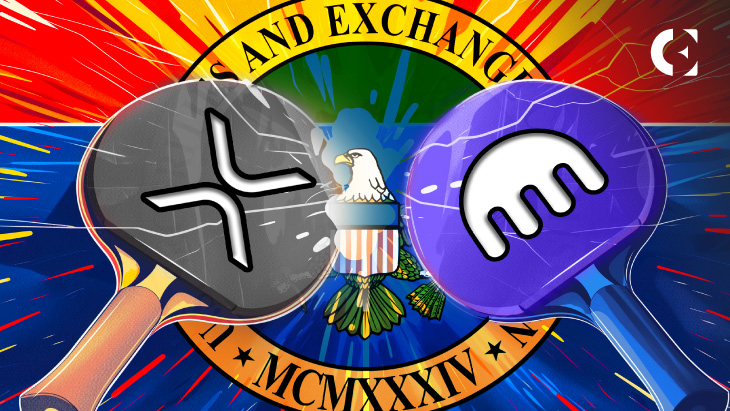- Bill Morgan highlighted Kraken’s failed reliance on Ripple’s ruling.
- Judge Orrick differentiates Kraken’s case from Ripple’s.
- The judge clarified that Ripple’s decision was highly specific to its facts and did not automatically apply to other digital asset cases.
Legal analyst Bill Morgan has weighed in on the ongoing legal battle between cryptocurrency exchange Kraken and the U.S. Securities and Exchange Commission (SEC), reiterating a critical distinction.
Kraken attempted to lean on a recent court decision involving Ripple Labs to defend itself against SEC allegations. However, Judge William Orrick found this argument to be “readily distinguishable” from the facts at hand. Reiterating the difference, Morgan remarked:
“Kraken tried to rely on Torres’ decision on Ripple’s programmatic sales of XRP (including on the Kraken exchange) that the SEC didn’t satisfy the third prong of Howey. It didn’t help Kraken.”
The U.S.-based exchange had cited Judge Analisa Torres’ ruling in the Ripple Labs case, in which it was determined that the programmatic sales of XRP did not satisfy the third prong of the Howey test. For context, the ruling concerned whether there was a reasonable expectation of profits derived from Ripple’s efforts.
However, Judge Orrick clarified that this decision was highly specific to Ripple’s facts and did not automatically apply to other digital asset cases. In his words, the Ripple Labs ruling was “carefully constrained to the facts of the case and predicated on findings from a fully developed record.”
He emphasized that determining whether secondary market sales of digital assets constitute offers or sales of investment contracts requires a comprehensive analysis of the economic reality of each transaction.
This approach aligns with the Ninth Circuit’s holding in Hocking, which declined to set a strict rule for when secondary market transactions involve securities. Instead, it calls for examining the “totality of circumstances” around each transaction, such as how the assets were promoted and what the investors’ intentions and expectations were.
Notably, Kraken’s legal battles with the SEC have been ongoing since November 2023. The regulator SEC charged the exchange with acting as a broker, dealer, exchange, and clearing agency for “crypto asset securities without proper registration.”
The SEC alleged that several crypto assets traded on Kraken, including those first sold by primary issuers and then by Kraken, qualified as investment contracts under securities law. Kraken disagrees with this categorization.
Disclaimer: The information presented in this article is for informational and educational purposes only. The article does not constitute financial advice or advice of any kind. Coin Edition is not responsible for any losses incurred as a result of the utilization of content, products, or services mentioned. Readers are advised to exercise caution before taking any action related to the company.







